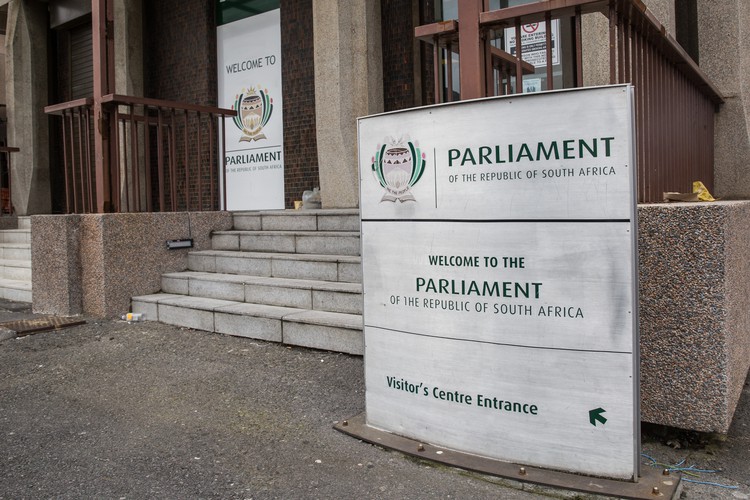Access to information: Public institutions are flouting the law
Only 20% of municipalities met their obligations to report to the Information Regulator
The Information Regulator is planning to seek the intervention of Parliament to deal with the failures of public institutions to comply with the Promotion of Access to Information Act. Archive photo: Ashraf Hendricks
Municipalities, provincial governments and legislatures, and even some institutions set up to defend the Constitution, are flouting the provisions of the Promotion of Access to Information Act (PAIA).
The Information Regulator recently called on public institutions and businesses to report on the outcomes of requests for information submitted to them by the public.
This is a legal requirement in terms of PAIA, and it helps Parliament measure the efficacy of the law and the progress we are making in our journey towards being a truly open democracy.
We found that only 20% of South Africa’s 257 municipalities have met the obligation of reporting to the Regulator the outcomes of requests that they received in the previous financial year.
Only 30% of the 58 provincial public entities and 38% of the 18 provincial business enterprises have complied. Provincial business enterprises are those under the control of a provincial executive, such as COEGA, the Richards Bay Industrial Development Zone Company or the Mpumalanga Economic Growth Agency.
Of the 853 public bodies - national departments, provincial departments, municipalities, universities and TVET colleges - only 278 submitted their PAIA annual reports to the Regulator. TVET colleges scored the lowest of all public institutions with only three of the 50 registered TVET colleges (6%) complying with the requirement.
The Regulator’s oversight authority also covers “private businesses”. The Regulator received 34,460 reports from private businesses. This might seem high compared to the 278 public bodies which reported, but in proportional terms, the 34,460 private bodies that submitted their reports constitute only 1% of all registered entities on the database of the Companies and Intellectual Property Commission. Private businesses are not obliged to report to the Regulator.
The Regulator found that even the authors of the law are also not compliant with the law. Of the ten legislatures in South Africa, only two legislatures submitted their annual reports. The Regulator also found that only 11 out of 52 political parties (21%) submitted their annual reports.
Poor compliance with PAIA is also evident in attempts to use the law to open up the operations of government institutions. A recent demonstration of this was GroundUp’s PAIA requests to all nine provincial Departments of Social Development for information related to payment of all grants from the year 2014 to 2024. In terms of the Department of Social Development’s Sector Funding Policy, the national department and all the provincial departments have to publish year-end reconciliation reports of all transfer payments on platforms including their departmental websites. This must be done within three months of the end of each financial year. According to the policy, “the purpose of publishing this information is to ensure transparency and accountability”.
This is consistent with the provisions of PAIA, which encourages proactive disclosure of such information by public bodies.
However, the results of GroundUp’s requests reveal that these provincial departments still fell short of their obligations. None of the social development departments had full and up-to-date reports publicly available, though some did upload the information following the request.
Most of the provincial departments did not meet the 30-day deadline for providing the information and requested an extension of a further 30 days, as provided for in PAIA, and some still failed to provide the full requested request even after the extension.
The public is encouraged to file complaints with the Regulator against public institutions which do not comply with the law. The Regulator is empowered to investigate such complaints and direct that action be taken to comply with PAIA. This is done through an Enforcement Notice which has the same legal force as a court order.
Faced with such poor compliance by public institutions, the Regulator is also planning to seek Parliament’s intervention. We will propose amendments to PAIA to provide for effective enforcement powers to deal with non-compliance issues.
We also hope that the new government will mark a change of perspective on transparency.
The Government of National Unity, which marks its first 100 days this week, is the most dramatic and far-reaching change in the composition of the South African government since Nelson Mandela’s government came to an end in 1999. This historic transformation should usher in a recommitment to the values of openness, transparency and accountability in the conduct of public affairs.
Views expressed are not necessarily those of GroundUp.
Support independent journalism
Donate using Payfast

Don't miss out on the latest news
We respect your privacy, and promise we won't spam you.
Next: New plan for inner-city housing in Cape Town
Previous: Learners in this rural school have one teacher and no toilets
© 2024 GroundUp. This article is licensed under a Creative Commons Attribution-NoDerivatives 4.0 International License.
You may republish this article, so long as you credit the authors and GroundUp, and do not change the text. Please include a link back to the original article.
We put an invisible pixel in the article so that we can count traffic to republishers. All analytics tools are solely on our servers. We do not give our logs to any third party. Logs are deleted after two weeks. We do not use any IP address identifying information except to count regional traffic. We are solely interested in counting hits, not tracking users. If you republish, please do not delete the invisible pixel.

